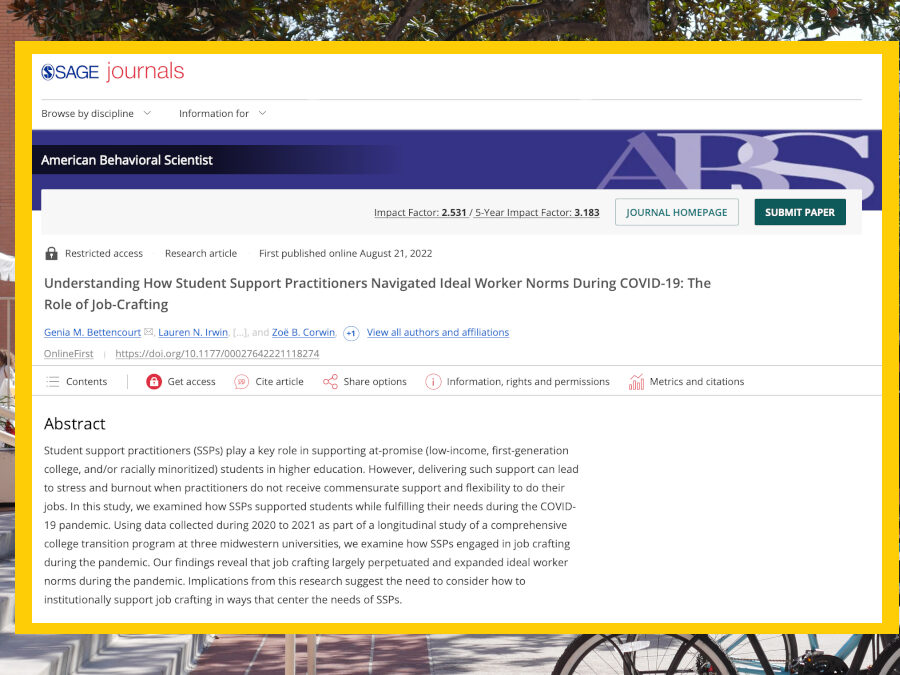Student support practitioners (SSPs) are crucial in supporting (low-income, first-generation college, and/or racially minoritized) students pursuing higher education. However, when practitioners do not receive commensurate support and flexibility to do their jobs, SSPs can experience stress and burnout.
In “Understanding How Student Support Practitioners Navigated Ideal Worker Norms During COVID-19: The Role of Job-Crafting,” PASS team researchers Genia M. Bettencourt, Lauren N. Irwin, Joseph A. Kitchen, Zoë B. Corwin analyze how SSPs supported students while fulfilling their own needs during the COVID-19 pandemic. For this American Behavioral Scientist article, the group uses data from 2020 to 2021 as part of a longitudinal study of a comprehensive college transition program at the University of Nebraska-Omaha, University of Nebraska-Lincoln, and University of Nebraska-Kearney. They examine how SSPs engaged in job crafting during the pandemic.
Job crafting are actions that individuals take to help shape their jobs and make them more rewarding. The article then goes on to talk specifically about task crafting (modifying what you do), cognitive crafting (modifying how you think about what you do), and relational crafting (who you work with).
The study’s findings reveal that job crafting largely perpetuated and expanded ideal worker norms during the pandemic. This research implies the need to consider how to institutionally support job crafting in ways that center the needs of SSPs.
Read the full article in the American Behavioral Scientist and learn more about the Pullias Center for Higher Education at pullias.usc.edu.


